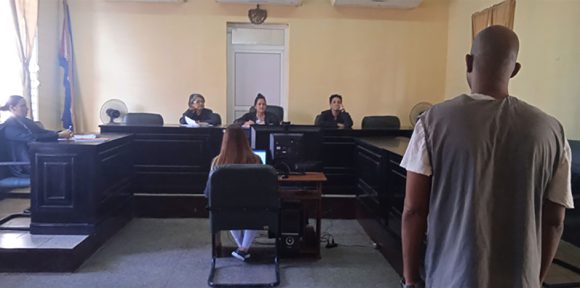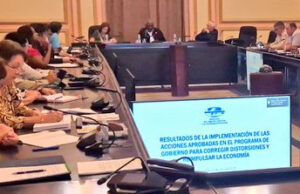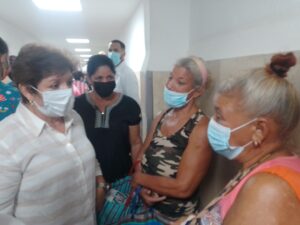Some 10 years have passed in which he must have accumulated sufficient experience. It seems like just another day in the course of a routine that nevertheless entails an act of extreme responsibility: controlling the stock, consumption, replenishment and safekeeping of fuel in a generator set.
He is Operator C of the one identified as Blind 1, which feeds the communications centre of the Provincial Delegation of the Ministry of the Interior (Minint). A university graduate and duly qualified, he is not exempt, however, from committing an extremely serious crime.
An audit was carried out on 29 April 2024. Preliminarily, 30 litres of diesel were found to be missing. Perhaps overcome by nervousness, he poured water into the group’s tank.
It is a Monday when the blackout of the day breaks out, the kind that is part of everyday life. The counterrevolution and the powerful forces that support it from outside take advantage of them to stir up despair. In an opportunistic way, they see that the lack of electricity for prolonged periods can be interpreted as a sign that the national and local authorities are not fulfilling their functions, and this even favours a matrix of opinion fed from the social networks of the Internet and other media: the failed Cuban state is the only one to blame for this and other hardships.
Meanwhile, workers and managers are taking extreme measures to avoid, or at least alleviate, the consequences of the interruptions. It takes only a short time for the response to the contingency to become a reality. At around 10 p.m., the Group starts up, but something goes wrong, and after about 20 minutes, the Ciego 1 cancane, it stops working.
The water contamination has negative repercussions in several ways: it affects the electricity generation that supplies the Minint’s communication centre and, in turn, causes the disconnection of the automated systems of the National Revolutionary Police (PNR) and interrupts the video protection systems deployed at the provincial level, the flow of information in the province and the nation, as well as the telephone services of the PNR and the fire brigade, and caused an economic impact on the Telecommunications Company (ETECSA) of 5.74 pesos for the value of the two filters that had to be replaced to re-establish the Group.
Months later
To hear case number 4 of 2024, for the crime of sabotage, the Camagüey court for crimes against the security of the State was constituted.
In the act of justice, the participation and criminal responsibility incurred by the accused was demonstrated, who was aware of the risk that his conduct could cause damage, although he did not actively seek it, so it was determined that he was responsible as the perpetrator of the crime of sabotage provided for in article 125, section 1, paragraph a, of the Penal Code in force in the Republic of Cuba.
Given the primary condition, the impeccable and outstanding social and labour conduct previously maintained, but without ignoring the seriousness and harmfulness of the acts committed, it was decided to impose on the accused, the sanction of seven years of imprisonment, with the consequent accessory sanctions such as the deprivation of rights, the prohibition to hold office, the prohibition to leave the territory, in addition to the confiscation of a blue porrón that was occupied at the time and that was used to contaminate the fuel.
It was informed that a period of 10 working days from the notification of the sanction was available to establish the cassation appeal before the same judicial instance.
Minutes earlier, the accused had confessed: «It was the time when the power went out every day, I thought they were going to blame me for that, I got nervous, the solution I came up with was to pour litres of water there so that when they measured… My intention was never to damage anything, I am quite sorry and quite ashamed because I am not a person who commits crime, much less one who commits sabotage».
However, the prosecutor’s words to those present argued the seriousness of the facts: «The crime of sabotage affects the public good and the internal security of the state, which refers to the right protected by the legal system to guarantee institutional stability, internal public order and the stability of the political structures of the state, in the face of internal threats such as protection against internal disturbances that threaten the institutional order. It may be committed with direct malice, with the intention of carrying out the act, or with malice aforethought, in the knowledge that this result may occur, as is the case here.
(Taken from Invasor)




